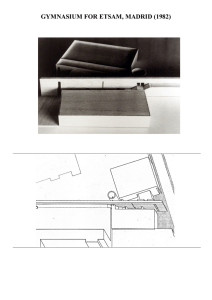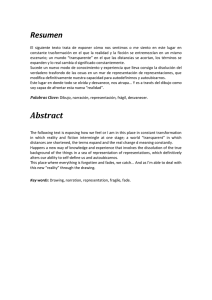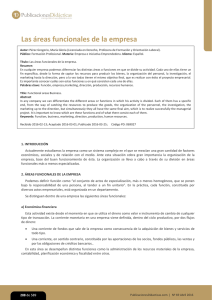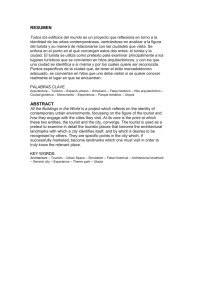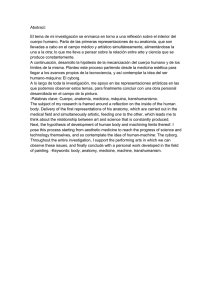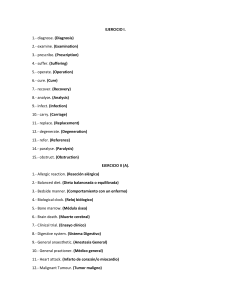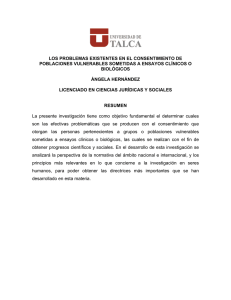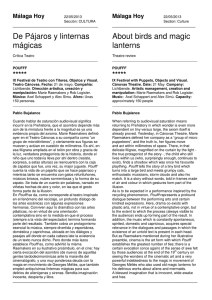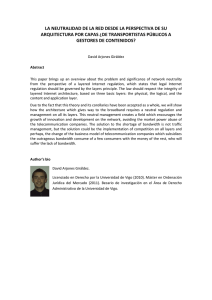algunos aspectos del sistema moral de la sociedad española
Anuncio
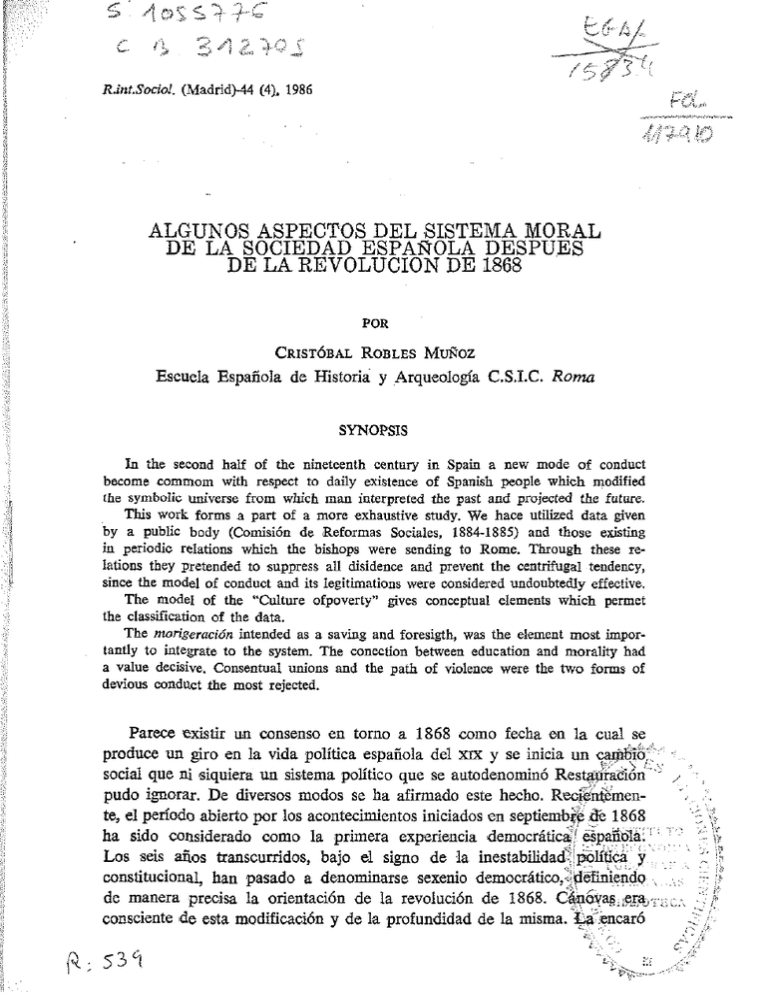
ALGUNOS ASPECTOS DEL SISTEMA MORAL DE LA SOCIEDAD ESPAÑOLA DESPUES DE LA REVOLUCION DE 1868 POR CRISTÓBAL ROBLES MUÑOZ Escuela Española de Historia y Arqueología C.S.I.C. Roma 1 . the sewnd half of the nineteenth century in Spain a new mode of conduct become commom with respect to daily existente of Spanish people which modified [he symbolic universe from which man interpreted the past and projected the future. This work forms a part of a more exhaustive study. We hace utilized data given by a public body (Comisión de Reformas Sociales, 1884-1885) and those existing in periodic relations which the bishops were sending to Rome. Through these relations they pretended to suppress aU disidente and prevent the centrifugal tendency, since the model of conduct and its legitimations were wnsidered undoubtedly effective. The modei of the "Culture ofpoverty" gives conceptual elements which permet the classification of the data. The morigeración intended as a saving and foresigih, was the element most importanUy to h t e ~ a t eto the system. The wnection between education and morality had a value decisive. Consentual unions and the path of violence were the two forms of devious wnduct íhe most rejected. Parece existir un consenso en torno a 1868 como fecha en la cual se produce un giro en la vida política española del m y social que ni siquiera un sistema político que se autodenominó pudo ignorar. De diversos modos se ha afirmado este hecho. te, el período abierto por los acontecimientos iniciados en ha sido considerado como la primera experiencia democrá Los seis años tmnscumdos, bajo el signo de la inest constitucional, han pasado a denominarse sexenio dem de manera precisa la orientación de la revolución de consciente de esta modificación y de la profundidad de la misma.'$á?:~ncaró
